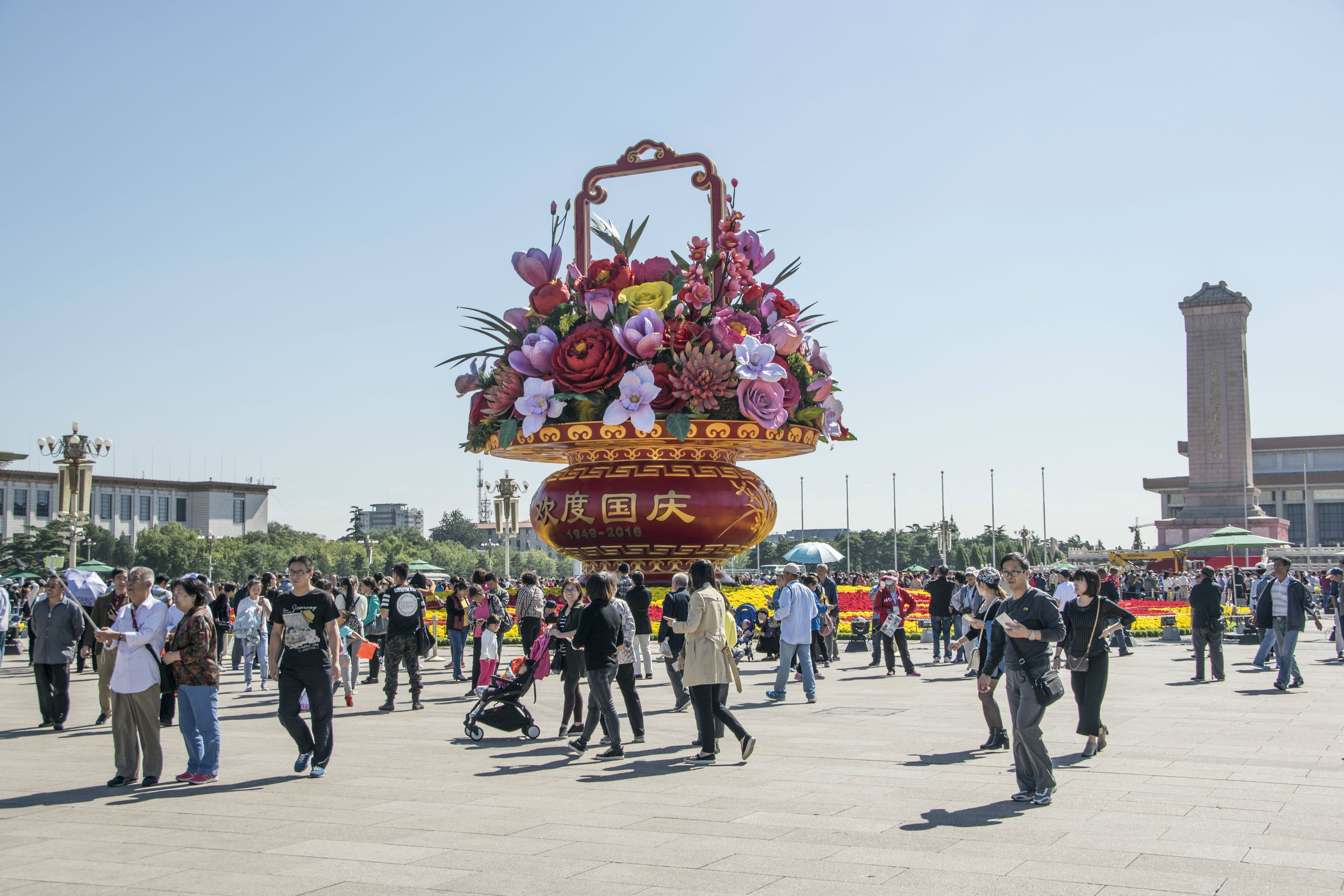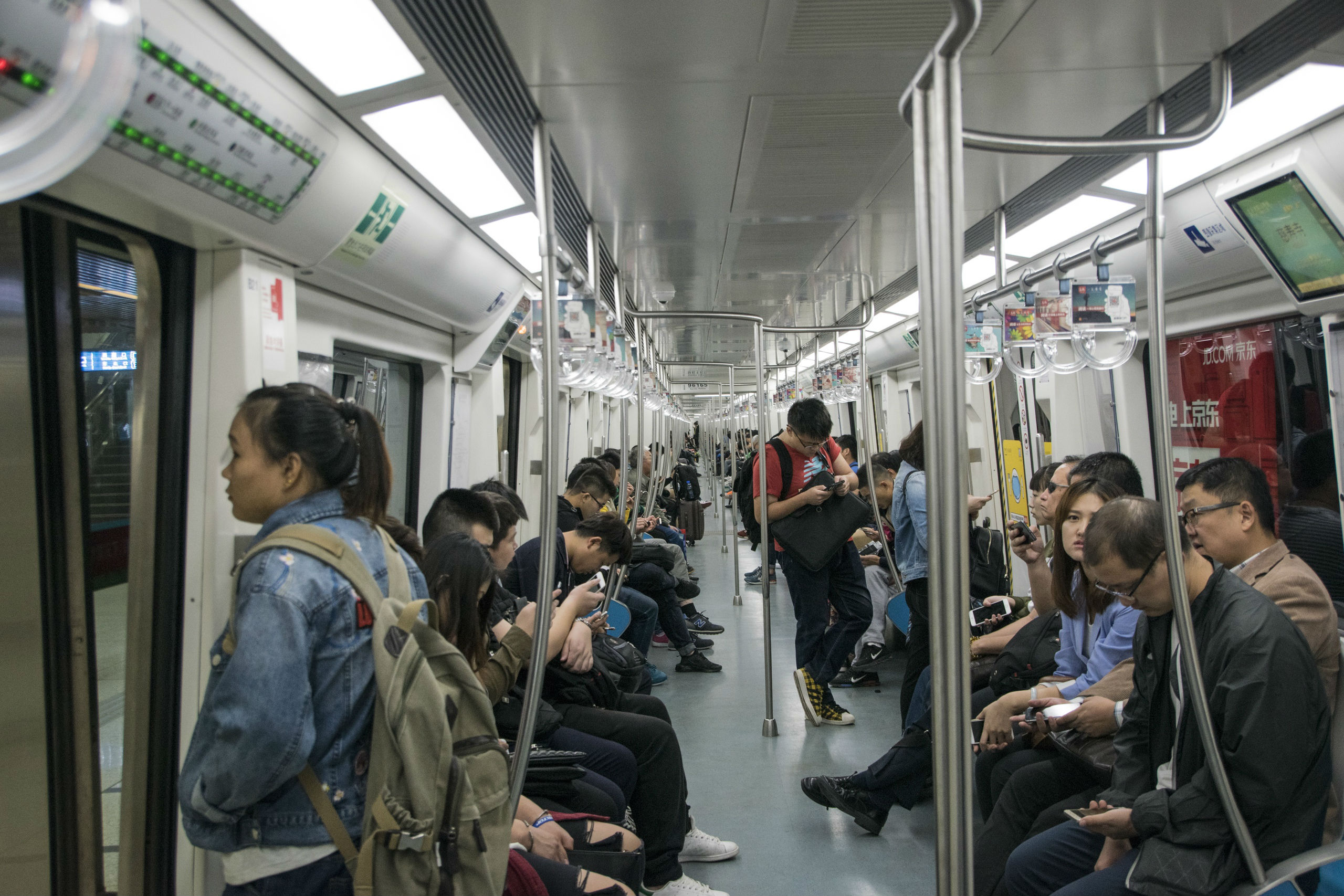Laziness and processing - about the IT and industry in China from the inside

Photos: Anton Areshin
A few days ago, the Chinese repository 996.ICU became popular on GitHub. Instead of the code in it - complaints about working conditions and illegal processing. The name itself refers to the meme of Chinese developers about their work: “From nine to nine six days a week, and then to intensive care unit” (Work by '996', sick in ICU). Anyone can commit to the repository if he confirms his story with screenshots of internal documents and correspondences.
The Verge drew attention to the case and found inside stories about working conditions in the country's largest IT companies - Alibaba, Huawei, Tencent, Xiaomi and others. Almost immediately, these companies began to block access to 996.ICU, without responding to comments from foreign media.
')
I do not know what could be more mundane than this news - as well as our reaction to it: “Do the Chinese complain of Github? Ok, soon they will block it and make their own. ” We are used to the fact that they only write about China - blocking, censorship, cameras, social rating a la Black Mirror, persecution of the Uighurs, hellish exploitation, absurd scandals with Winnie the Pooh memes and so on.
At the same time, China provides the whole world with goods. Giant companies that condemn non-freedom are ready to forget their principles, just to get into the Chinese market. In China, the most powerful industry and IT industry, there is developing astronautics. Rich Chinese are demolishing real estate markets in Canada and New Zealand, buying everything for any money. The Chinese films and books that come to us are simply beautiful.
These are interesting contradictions (combinations?). In a world where the truth finally died under the knives of points of view, it seems impossible to understand the whole context of what China really is. Even without hoping to figure it out, I talked to several people who have been living and working there for a long time - just to add a couple more opinions to the piggy bank.
Student frontier against govnokod
Artem Kazakov has been living in China for six years and is engaged in frontend-development. He comes from Angarsk in the Irkutsk region. Prior to the 9th grade, Artem was in school with in-depth study of the English language, but in the middle of the semester he decided to change directions and go to the Polytechnic Lyceum. There he was treated with doubt - they did not want to take a person from a humanitarian school.
One year later, he won a trip to the USA on the FLEX program, the fifth in the history of the lyceum.
Artyom also turned upside down - he replaced natural languages with programming languages, and English into Chinese. “In the 2010s, no one was surprised by the knowledge of English, so I enrolled in Dalian Pedagogical University for Chinese language courses. After two years of courses, I passed the HSK exam (like IELTS, TOEFL) to a level sufficient to enter the university for a bachelor’s degree, ”he says.

After Dalian, Artem moved to Wuhan, Hubei Province, and entered Wuhan University - the eighth in the ranking of Chinese universities. In parallel, he studies in the Angarsk University in absentia and in June he will defend two diplomas at once.
Artyom lives in China on a student visa, and working on it — even remotely — is not entirely legal. “It is strictly forbidden to work with a study visa in China, but it is necessary to survive,” he says, “I personally taught TOEFL and IELTS students for several years, both in Dalian and in Wuhan. There is an option to work as models, or bartenders, but it is more risky. If caught once - a fine of five thousand yuan from you and twenty-five from the employer. The second time is deportation, and in some cases up to fifteen days and a black seal (you cannot enter China for five years). Therefore, it is not necessary to know about my work remotely to anyone here. But even if they find out, I don’t take money from the Chinese, I don’t break the law, so there’s no problem. ”
In the second year of university, Artyom was an intern at a Chinese IT company. There was a lot of routine, day after day I had to type out HTML pages. He says that the tasks were boring, no magic on the back, no new solutions at the front. He wanted to gain experience, but quickly ran into local peculiarities: “The Chinese work according to a very interesting pattern - the task comes to the project, and they do not cut it into small pieces, do not decompose, but simply take it and do it. Often there were cases when two different developers wrote the same module in parallel. ”

It is quite natural that in China there is a huge competition for places. And, it seems, local developers have no time to study new and advanced to become valuable - instead, they write as soon as possible on what is:
“They do poor quality, they have a lot of shit, but in some magical way everything works, and this is strange. There are a lot of labor and outdated solutions, judging by JS. I did not see that the developed sought to learn something new. Roughly speaking - we learned PHP, SQL, JS, and write everything on it using jQuery on the front. Fortunately, Evan Yu came, and the Chinese moved to the front at Vue. But this process was not fast. ”
In 2018, after an internship at one company, Artyom was called to another - to refine the mini-application in WeChat. “There, no one even heard about ES6 in javascript. No one knew about arrow functions or destructuring. The very style of writing code made the hair on my head stand on end. ” In both companies, Artyom spent a lot of time on editing the code of the previous developer, and only when he brought everything into a normal form, he began his initial task. But after a while, he found the same corrected pieces of him again spoiled.
“Though I was not the most experienced, I decided to switch from code.aliyun to GitHub, I began to review the code myself and send it back to the developer for rework if I didn’t like something. I told the management - if they want their application to work, as they intended, they need to trust me. Techlide was extremely dissatisfied, but after the first week of work, everyone saw the progress, the frequency of displaying the code with a minimum number of minor bugs to WeChat users, and everyone agreed to continue. Chinese developers are smart, but they love coding the way they once learned and unfortunately don't strive to learn something new, and if they learn, it is very difficult and long. ”
In turn, in the back end without surprises. Like us, Java and C-languages seemed to be the most popular for Artem. And just like with us, working in IT is a quick and risk-free way to get into the middle class. Salaries according to his observations vary between a high figure in the Russian Federation and an average in the United States, despite the fact that you can live well on the average Moscow one hundred thousand rubles a month. “Good shots are valued here, you just have to make your way and hold on to the place, otherwise you will be replaced.”

What the developers complain about at 996.ICU, Artyom confirms: “Startups that are starting to make money sit on the development day and night. Many companies provide offices with sleeping places. All this is done in order to do as much as possible and finish our plans faster. This is pretty standard in China. Eternal processing and long working weeks. ”
Production Manager Against Laziness
“To say that the Chinese are such poor creatures, they are processing ... well, they feel fine,” says Ivan Surkov, production manager of Tion in China, “I think the stories of how Chinese people are driven in factories in slave conditions are all fairy tales just to discredit the companies for which they produce. I have not seen a single enterprise, which would have been hellish work. Probably, it seems so to Europeans, who have lived all their lives in the city, where everything is cool, clean, the paths are lined with stone - and here they come and see how people stick out in the factory from morning to evening. ”
Ivan has been seeing this for several years every day, but he came to China from Ivanov, a place where everything is not exactly cool and clean. Six years ago, he began to learn the language at a school for foreigners at the university. Now Ivan is working for a Russian company that manufactures smart breathers in China. He goes to the company with his documentation, and they take up the production. Ivan throws off orders, monitors their execution, resolves conflict situations, travels to contractors and manages everything related to contract manufacturing. And if, reading about eternal reworking, I represent selfless hard work, then Ivan says that every day he struggles with Chinese laziness.
“For example, I come to the customer service manager, who should run with me throughout the plant. She just needs to go down to the first floor, go into the next building and tell people a few words. But begins: "Oh well, go yourself." Damn, you are not doing anything now, you are stupid in the monitor, lift your ass! No, she will find another person better. And that's all - in order to make the Chinese work - they really need to be forced. You can negotiate with them, but you should always look so that you are not deceived. In rare cases, you even have to press, hysteria, say that you do not accept the goods, that they will get money. In order for them to move, one must constantly act. ”

I did not hear such things for the first time, and it always seemed strange to me: on the one hand, negligence, old technologies, shit-code - but in a few years China replaces the entire Internet industry with its own and produces services that are sustained by billions of users. People talk about laziness and unwillingness to work - but in the same place there are normally twelve-hour days and six-day working weeks. Ivan believes that there are no contradictions in this:
“Yes - they work, but not diligently. It’s just the amount of time, not the quality. They work eight hours, and then another four. And those hours are paid at a different rate. In fact, it is voluntary-compulsory, and everyone works this way. They have the option not to come in the evening, but money is money. Especially when you are in an environment where it is normal, then it is normal for you.
And the speed of production is the same conveyor. Even Henry Ford figured out how everything should work. And if your staff is trained, then there are volumes. In addition, the Chinese are not afraid to invest, they are quite courageous in this regard. And if they have invested, they squeeze out of them everything they can. ”
Who is good in China
Now Ivan lives in the city of Shenzhen - this place is called the “Chinese Silicon Valley”. The city is young, it is about forty years old, but during this time it has developed at a breakneck pace. Now more than ten million people live in Shenzhen. The city stands on the sea, recently it was attached to it two very large areas from other provinces, which were previously completely industrial, built one of the most beautiful airports in China. Ivan says that his district is actively renewing, demolishing the old, building up. When he arrived there, there was a continuous construction around, they were just filling the piles. Two years later, developers began to take finished apartments.
Almost all Chinese electronics (except, for example, Lenovo) are produced here. Here stands the Foxconn factory - it is a giant electronics assembly factory, where among others Apple equipment is produced. Ivan told how his friend went to this factory, and he was barely allowed to go there. “You are of interest to them only if you order from a million mobile phones a year. This is the minimum - just to talk with them. ”

In China, almost everything works according to the business-to-business scheme, and in Shenzhen, there are a lot of large and small contract enterprises. At the same time, there are few full-cycle enterprises among them. “On one they make electronics and components, on the second they pour plastic, then on the third something else, on the tenth they put it together. That is, not as we are used to in Russia, where there are no longer needed enterprises of a full cycle. This is not how it works in the modern world, ”says Ivan.
Shenzhen has a warm climate, and unlike in the north of the country, there are many electric cars. All of them, like ordinary cars with ICE, are mostly local. “In China, they make really cool cars - Gili, BYD, Donfon - there are really a lot of car brands. Much more than represented in Russia. The slag that is brought to Russia, it seems to me, is not even sold here, except somewhere in the west of China. Here, in the east, which is all in production, if the machine is Chinese, then it is worthy. Good plastic, salon, leather seats, ventilated butt and everything you want. "
Both Artyom and Ivan say that China is much more comfortable for life than they thought before their arrival: “The PRC has everything that an ordinary Russian person might need. Gym, swimming pools, eating places, huge malls, shops. At the weekend we go out with friends for a walk, to the cinema, sometimes to a bar, or go out into the countryside, ”says Artyom,“ This is just the expectation that Chinese food is delicious - for me it was a fiasco. Having lived for six years in China, I found only a few Chinese dishes that I like, and even those that vaguely resemble western food. ”
“Many things that we know about China are greatly exaggerated,” says Ivan, “Here you don’t feel overcrowded. I have been living in China for six years and only now saw someone shoving a person in the subway. Before that, I lived in Beijing, was on the subway, and had never met one of them - although Beijing is quite a densely populated city. We constantly show this garbage on TV, they say, in China it is commonplace. And I saw this for the first time in six years, only in Shenzhen at rush hour! And it is not as hard as they say about it. Half an hour and all - the crowd will not see. "
Freedom is good or bad
But the views on the notorious censorship and freedom of the guys differed in their views. According to Artem, the social rating is leaking to all parts of China. “You can already meet people who cannot buy a plane ticket, or a train of a good class because of a low rating. You can raise the rating in many ways. There is an application in which the Chinese can surrender their illegal alien neighbor and get a good reward for it. A couple of phone screen touches and that's it. I bet this helps rating too. Or, it is enough for the Chinese to simply think that their neighbor is a foreigner who does not work on a work visa, and soon the police will come in with a check, ”says Artyom.

Ivan never faced such cases, and in general with discontent and negativity. “People immediately begin to compare this with the“ Black Mirror ”, they love to mystify everything, they want to see only the bad in any attempt to organize something. And maybe the social rating is not a bad thing, ”he believes.
“I think now everything is only being tested, and when it goes to the masses with legislative support, it will be visible there. But I sense that cardinally life will not change. It's just that there are a lot of cheaters in China. According to popular opinion, they like to deceive only foreigners - in fact, the Chinese too. It seems to me that this initiative is aimed at improving life for everyone. But how it will be implemented in the future is a question. You can cut bread with a knife and kill a person. ”
At the same time, Ivan said that he did not use the local segment of the Internet - except Baidu, Google’s local counterpart, and only for work. Living in China, he continues to sit on the Russian-language Internet. Artem enjoys, but believes that the Chinese Internet is solid censorship.
“On a large scale, it began in 2014, when Google was banned. At that time, Chinese activists, for example, AyVeyVay, tweeted the whole truth about life in China. There was a case: there was an earthquake in China, and since they saved on building schools, there were a lot of victims. The real death toll was hidden by the government.
IVayVay was a hyper and created a program - he was looking for the parents of all the victims of the tragedy to tell the world about the real situation. Many followed suit, began to post stories to the global network. All this came to the attention of the government, and it began to block Google, Twitter, Facebook, Instagram and many sites that I now need to develop the skills of a Frontend developer. ”
“I think the Chinese people live well, although they all whine that they are not free,” says Ivan, “They think that the bulwark of freedom is somewhere in the west. But it is always good where we are not. There are a lot of articles on the Internet that totalitarianism is everywhere in China and there are cameras everywhere. But the city with the most cameras is London. And to speak in this vein about China is pure propaganda.What does the Chinese Internet look like?
I expected the Internet speed to be at least the same as in the Homeland, but no - the Internet is very slow. Plus in order to walk freely on any sites you need a VPN.
From about 2015, Chinese analogues of foreign services began to be created in the country. At that time, video streaming Djibo was very popular. Any content was laid out there, the Chinese liked it, and it was possible to make money there. However, later the service appeared - DowIn (Tik Tok), which still “pumps”. Quite often, content is copied from foreign analogues, and shown in Dowin. Since a greater number of Chinese do not have access to foreign resources, no one suspects plagiarism.
TuDou and YoKu (analogues of YouTube) are not popular, since these services are state-owned, there is a lot of censorship - there is no creative freedom.
You won't mess up with messengers in China - there is WeChat and QQ. It immediately and instant messengers, and social networks. There were other attempts to create something similar, but QQ and Wechat are used by about 90% of the total population of China. The second problem is censorship again. Everything must be controlled. Both applications were created by Tencent.
QQ is more suitable for students because it is an excellent file sharing service. In Wichat there are functions that allow you to pay for a communal flat, buy tickets for a plane, train, and even buy from a Chinese grandmother on the street, which looks like 170 years old, tomatoes, and pay her with the help of WeChat. There is one more service for making payments - AliPay (Jifubao), and there you can also communicate with friends there.

At the same time, Ivan agrees that in China there is a serious security system: “The Chinese at the helm understand that people cannot be given will, otherwise they will start heating up each other in such a way that they will arrange hell. Therefore, society is well watched. ” And most of the technical innovations, according to Ivan, are needed to speed up the processes in a country with a huge population. For example, electronic passport-cards, payment systems in instant messengers, ubiquitous QR codes are needed just for this.
“In principle, in China people are treated like human beings. In the circle where I communicate - they are both directors of firms, and ordinary workers and office engineers - everything is fine with them. ”
Process and bureaucracy on the road to WeChat
About a year ago, Dodo Pizza announced that it would launch a pizzeria without a box office in China. All payments there must go through WeChat, but it turned out to be very difficult to carry out from outside of China. There are many pitfalls in the process, and the main documentation exists only in Chinese.
So to his two diplomas, Artem also added a remote job at Dodo. But getting their application into WeChat turned out to be a long history.
“In order to open a website in Russia, you just need to open a website. Hosting, domain and forth. In China, everything is much more complicated. Suppose you need to create an online store. To do this, you need to buy a server, but the server cannot be issued to a foreigner. We have to look for a Chinese friend to give his ID card, you went through the registration and bought a server. ”
After buying the server, you need to buy a domain, but in order to launch the site into operation, you need to get several licenses. The first is the ICP license. It is issued by the Ministry of Industry and Informatization of China to all commercial sites in mainland China. “To get an ICP for a new company, especially a foreign one, you need to collect a bunch of documents and go through several steps on the government website. If everything goes without delay, it will take about three weeks. After receiving the ICP, another week will be spent on obtaining the Public License Filling. And welcome to China. ”
But if the opening of sites differs only in bureaucracy, then the work with WeChat is absolutely unique. Tencent came up with mini-applications for their messenger, and they became wildly popular in the country: “I would be happy to compare them with something, but there are no analogues. In fact, these are applications inside the application. For them, WeChat invented its own framework, which is very similar in structure to VueJS, created its own IDE, also works well. The framework itself is new, and quite powerful, and although there are limitations, for example, AXIOS is not supported. Due to the fact that not all methods of objects and arrays are supported, the framework is constantly evolving. ”
Due to the growing popularity, all developers began to rivet tons of identical mini-app. They are so flooded messenger that Tencent put restrictions on the size of the code. For mini-ups - 2 MB, for mini-games - 5 MB.
“In order to be able to knock on the API, it is necessary that the domain has ICP and PLF. Otherwise, you cannot even add the address of the API in one of the numerous admins of Wichat. There are so many bureaucracies that sometimes it seemed I could never go through all instances, register all Wichat admin rooms, get all licenses and access. This is possible only if you have developed logic, have brains, patience, programming knowledge (otherwise you don’t even know where to look), and, of course, knowledge of Chinese. Most of the documentation is in English, but the cream is exactly what you need - it is only in Chinese. There are a lot of limitations, and such self-closing chains are fun to watch only from the side.
Having completed everything to the end, you get real pleasure - on the one hand you defeated the system, and on the other ... you just figured out all the rules. To develop something in such a new environment, and at the same time being one of the first in this area is really cool. ”
Scene after titles
In fact, this article has grown out of one simple question - is it true whether Winnie the Pooh does not exist in China? It turned out there. Pictures, toys and found here and there. But when Ivan and I tried to google memes about Xi Jinping, we didn’t find anything except cute pictures.
Source: https://habr.com/ru/post/448160/
All Articles